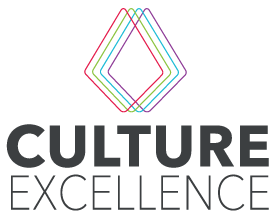When we talk about culture, whether proactively at conferences or reactively in response to an incident or outbreak, one of the very first things we need to agree on is what we mean by culture. From the arts to the petri-dish, the term is widely used, and even within the realm of organisational culture we see a great variety of definitions and approaches.
Having researched this topic for the last 16 years, studying corporations big and small across the world, we have come up with four categories that we believe encompass the different elements of safety and quality culture in a simple and effective way: the 4 Ps of People, Process, Purpose and Proactivity.
Each of these categories breaks down into a set of detailed Dimensions and Elements, but to get an overview of the categories themselves, let’s look at what they mean:
Purpose
Every company has a purpose – a reason for their existence and goals for their future. In the food industry, at the simplest level this typically would be to produce food in a safe and profitable way, and to continually improve at this. However, when getting into the detail of an individual company’s purpose – including their long term vision, the plans in place to help them achieve it, and the inherent values that they don’t want to compromise in order to get there – the knowledge and understanding of this can vary greatly across the organisation. Food safety and quality may be expected to be core values of the company, and indeed be added to posters to identify them as such; but in a busy, high pressure production environment, will this always be the case? Tackling real issues at production level involves the need to really understand where there may be differences of opinion or practical challenges that prevent people acting and thinking in the way that we would like them to.
Proactivity
An important question every company should know the answer to - do people know where the most significant risks are and do they take them seriously? To be proactive in a work environment means many things – it means that you are aware of people and events outside of the organization and how they affect you on this inside. It means that you are open to change and innovation, that you focus on, seek out and mitigate significant risks, and that you have sufficient investment to achieve this. And also it means that you are able to learn from your mistakes without resorting to a blame culture, facilitating an environment of trust, honesty and reporting.
Process
Every organization has internal mechanisms that keep it running. But how consistent are they – between people, shifts, and departments? Are there user-friendly, effective systems that help processes run smoothly and effectively? What happens when conflicts arise and priorities differ? Do employees feel well managed and that their workload is balanced and fair, or do they feel it is burdensome and nestled in nepotism? All of these questions, and many more, are important to understand in order to build a fuller picture of a company’s culture.
People
Last, but very much not least, is the People category. People are key to the success of safety and quality, and as stated by Food Safety Culture expert Frank Yiannas (2009) “You can have the best documented food safety processes and standards in the world, but if they are not consistently put in place by people, they are useless”.
Getting the right food safety and quality behaviours is a psychological as well as technical and managerial issue, and in very simple psychological terms we need the right knowledge, attitude and behaviour. For people to work in the way that we want them to, amongst other things it is necessary to train and communicate with them effectively (knowledge), motivate them through reward and incentive (attitude), and empower them to take action when needed (behaviour). These aspects, and more, contribute to the People Category. They are important for safety and quality, but also contribute towards employee engagement and retention.
So we talk of People, Process, Proactivity and Purpose – no category is more important than the other, but rather each form an integral part of the culture puzzle. Some companies will excel in their people category but lag behind in process, or they will have focused a great deal on purpose but neglected proactivity along the way. A strong culture will see a company performing well in every category – but as with all things culture, even the highest scoring companies will need to continually manage and improve each category in order to banish complacency and stay on top.




